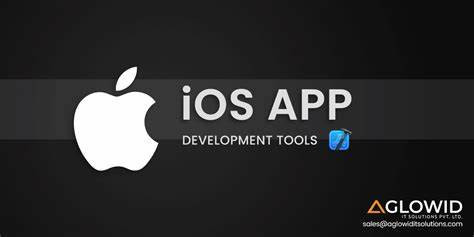views
Apple’s iOS platform, powered by Swift and Xcode, is renowned for its seamless performance and robust security. In 2024, the App Store generated $90 billion in revenue, with iOS apps accounting for a significant share due to higher user spending compared to Android. The introduction of iOS 18 in 2024 brought enhanced AI capabilities, improved privacy features, and support for spatial computing, setting the stage for 2025 innovations. Developers are leveraging these advancements to create apps that integrate with Apple’s Vision Pro, Apple Watch, and HomeKit, expanding use cases across health, education, and entertainment.
Key trends in 2025 include AI-driven personalization, augmented reality (AR), and SwiftUI adoption. AI enables apps to offer tailored experiences, such as personalized fitness plans in health apps or curated content in streaming platforms. AR, enhanced by LiDAR scanners in iPhone 16 models, powers immersive apps for gaming, retail, and real estate, allowing users to visualize products in 3D. SwiftUI, Apple’s declarative UI framework, accelerates development by enabling cross-device compatibility, reducing coding time by 30% compared to UIKit. Developers are also embracing Swift 6’s concurrency features, improving app performance for data-intensive tasks.
Security remains a priority, with Apple’s App Tracking Transparency (ATT) framework strengthening user privacy. In 2025, compliance with ATT and GDPR is critical, as 70% of users opt out of tracking, pushing developers to adopt contextual advertising. The App Store’s stringent review process ensures high-quality apps, with 1.9 million apps available in 2024, though rejection rates hover at 20% for non-compliance. Businesses benefit from iOS’s affluent user base, with 60% of iOS users willing to pay for premium features compared to 40% on Android.
Industries leveraging iOS apps include healthcare, where apps like MyFitnessPal integrate with HealthKit for real-time health monitoring, and finance, with apps like Paytm offering secure transactions via Face ID. Education apps like Duolingo use AI to personalize learning, while gaming apps like Genshin Impact drive in-app purchases, contributing to $50 billion in App Store gaming revenue in 2024. The enterprise sector is also growing, with custom iOS apps streamlining operations for 80% of Fortune 500 companies.
Challenges include high development costs, averaging $50,000–$150,000 for a mid-sized app, and fragmentation across iOS versions. Developers must optimize for devices from iPhone 8 to iPhone 16 Pro, requiring rigorous testing. DevOps practices, such as continuous integration and delivery (CI/CD), address these challenges by automating testing and deployment, reducing time-to-market by 40%. Tools like Fastlane and Jenkins, integrated with Xcode Cloud, enhance collaboration, ensuring scalability and reliability.
The future of iOS development lies in spatial computing and AI. Vision Pro’s mixed reality apps are expected to grow 50% in 2025, with applications in training and design. AI models like Apple Intelligence enable on-device processing, reducing latency and enhancing privacy. Developers are also exploring Web3 integrations, with 15% of new apps incorporating blockchain for secure transactions. Staying updated with WWDC 2025 announcements will be crucial for leveraging new APIs and frameworks.
For businesses, iOS development offers high ROI, with 25% higher revenue per user than Android. Partnering with experienced developers ensures apps meet Apple’s standards, maximizing approval chances. Platforms like HexaHome streamline real estate apps, showcasing iOS’s versatility. To build efficient iOS apps in 2025, DevOps practices are essential for scalability. Discover how at Hexadecimal Software’s DevOps services.




Comments
0 comment